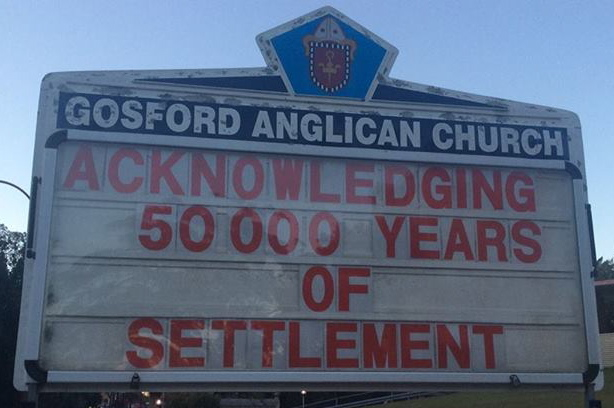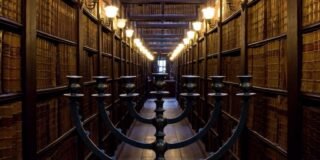Where to start … where to start … After a protracted hiatus, Blak and Black is back! There’s so much to write about, so much in the news and the world at large. We’ll get to much of it over time, but there’s really only one place to restart for a blog that revolves around discrimination, in particular indigenous racism and that’s Australian Prime Minister Tony Abbott’s most recent foot-in-mouth moment at the Australian-Melbourne Institute 2014 Economic and Social Outlook Conference Dinner in the past fortnight at which he made this controversial comment in response to a question posed by an attendee:
“I guess our country owes its existence to a form of foreign investment by the British government in the then unsettled or, um, scarcely settled, Great South Land,” he said.
Gareth Hutchens, Sydney Morning Herald, 3 July 2014.
This leader, who proclaims to spend one week of each year living and working in an indigenous community, demonstrated a particular insight into his views of aboriginal affairs. A review of news media will see the comment largely debunked as ignorant; a review of social media is more forgiving, perhaps even accepting of Abbott’s comment.
The Gosford Anglican Church made an immediate response to Abbott’s comment via its regularly updated, topical signpost outside the church:
The barrage of comments that have followed has made for entertaining reading. Some argue that the pastor is politicized. Some argue that he preaches against the creationist theology propounded in Genesis. Some agree. Bet you can’t guess in which camp Blak and Black sits!
Religion SHOULD be concerned about issues of ethics and whether we like it or not, that includes politics. As the moral compasses of so many people’s lives, it is incumbent upon the leaders of every religion, be they Anglican, Catholic, Protestant, Muslim, Hindu, Zoroastrian, whatever, to cause each and every person to consider the moral basis of our opinions. Opinions lead to decisions. Decisions result in actions. Actions almost always, affect others.
The ethical decisions that led to the settlement of the “Great Southern Land” were based upon false racially biased assumptions that touted that the indigenous people of Australia were sub-human, incapable of managing their own lives or of building their own society. There is ample evidence of significant structure in Aboriginal culture at the time of British settlement, a strong moral imperative in the community and a deep spiritual affinity with the land on which they lived. There were territorial boundaries between the various indigenous nations, differing languages, and a means of interacting that respected each others’ tribal lands. Yet, where the Indians of North America or the Maoris of New Zealand were afforded some form of treaty, the British offered no such agreement to Australia’s indigenous people. Indeed, when Batman attempted to implement such an agreement in exchange for land in Melbourne, it was declared null by the colonial imperator Richard Bourke, Governor of New South Wales.
Separation of church and state should indeed be key in leadership of any state. Nevertheless, it remains the role of our spiritual leaders to challenge not only our beliefs, but our reasons for those beliefs. It is from philosophy and theology that we build our society and we must examine the basis of those tenets to truly come to a well reasoned and defensible position about our actions as a society. It remains the role of atheists to argue how morality can exist without a theological basis. And it remains the task of each of us to look inside ourselves for the moral imperatives that drive our decisions.
The other argument regarding creationist theology I see as little more than a diversionary tactic on the part of right leaning radicals who refuse to examine the actions of their ancestors and the consequential benefits that they have inherited, hence shielding their own conscience from the truth of ethical reasoning. Whether it be 226, 7000 or 50000 years, the time since British settlement is irrelevant. What is relevant is the manner in which control of this land was wrested away from a people who considered this to be their tribal lands. One comment on the Gosford post mentioned that “settled” is different to occupied”. Frankly, I find the comment quite insulting. The land that we call Australia was occupied by kangaroos, wallabies and dingoes when British settlers arrived; with that one comment, “occupied” consigns Indigenous Australians back in that insidious category of fauna, a category that allowed them to be excluded being counted toward tallies of population for census data, seats in the senate and exiled them from mainstream society and was not properly abolished from the Australian Constitution until the referendum of 1967.
Whether one accepts creationism or not, the reality remains that Australia was inhabited by a race of people who considered this land to be their own both spiritually and territorially when British settlers first arrived. If you accept that the earth is only 7000 years old, then that means God placed them here first, before anyone else arrived. If you accept the most recent archaeological thought, then homo sapiens sapiens began on this continent, which we now call Australia, with the Aborigines, not in Africa and again, here long before British settlers arrived. However, you look at things, regardless of the arguments based upon theology or archaeology, this continent was settled and “owned” by humans known as Australia’s Aborigines long before the British, Dutch or Portuguese ever reached these shores.
Accepting and honouring that the indigenous people of Australia have a soul connection with this land that extends well beyond that of people of non-Indigenous heritage should pose no threat to anyone person’s identity. We are all influenced by our heritage. The ego is tightly bound to our knowledge of our heritage. By denying the indigenous people of Australia their connection to land and calling them Other, we condemn them to an eternity in which they become stateless and hence, less than human, denied the most basic of rights – belonging. Surely we can simply share with our indigenous countrymen and women and allow them the space to be who and what they are without needing to devalue their humanity by implying that their forebears were less than ours, by saying that this land was terra nullius. Terra nullius is a myth generated in 1979 that needs to be corrected.
Tony Abbott purports to be a man concerned about indigenous affairs. And yet his comment last week demonstrates a psyche mired in self-righteous rhetoric that for reasons I fail comprehend see acceptance of the Other in our community as dangerous to himself and society. What Abbott and those like him need to understand is that it is not the indigenous who are Other, but the descendants of settlers and immigrants. White settlement may have brought great advancement to this land, but it also took the lives and peace of many people who have received limited acknowledgement and virtually no compensation for their loss. Reconciliation and inclusion begins with acceptance of this single point. If we are unable to build this bridge as a society with the First Australians, how can we ever expect to triumph over the multi-cultural challenges that threaten the peace of this nation in the future?


